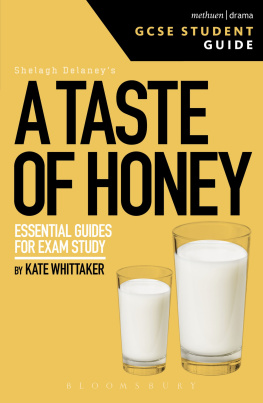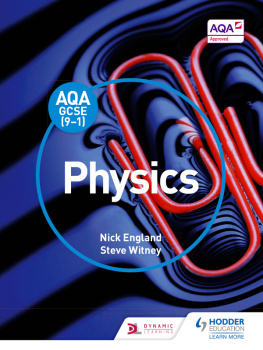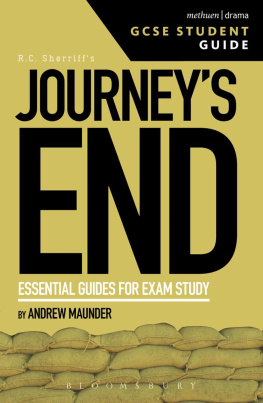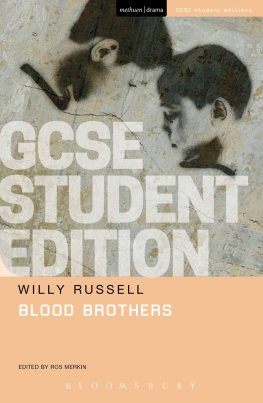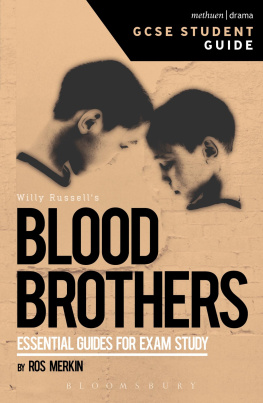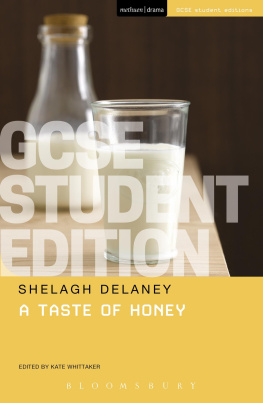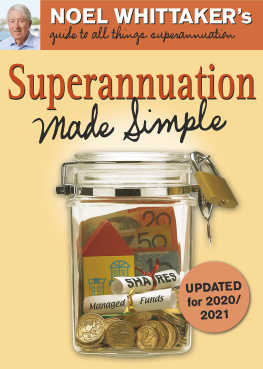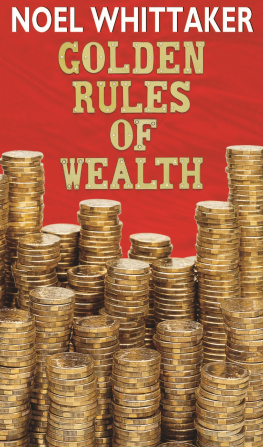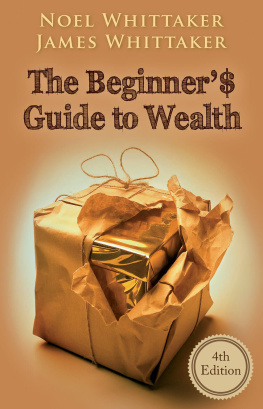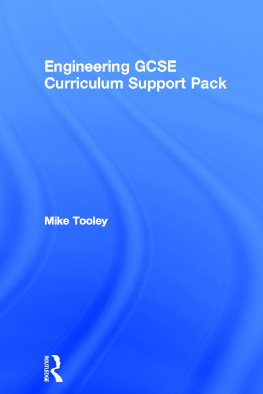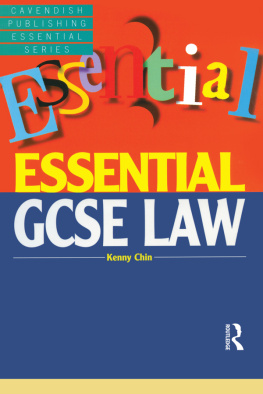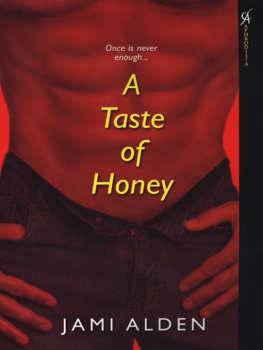Kate Whittaker - A Taste of Honey GCSE Student Guide
Here you can read online Kate Whittaker - A Taste of Honey GCSE Student Guide full text of the book (entire story) in english for free. Download pdf and epub, get meaning, cover and reviews about this ebook. year: 2016, publisher: Bloomsbury, genre: Children. Description of the work, (preface) as well as reviews are available. Best literature library LitArk.com created for fans of good reading and offers a wide selection of genres:
Romance novel
Science fiction
Adventure
Detective
Science
History
Home and family
Prose
Art
Politics
Computer
Non-fiction
Religion
Business
Children
Humor
Choose a favorite category and find really read worthwhile books. Enjoy immersion in the world of imagination, feel the emotions of the characters or learn something new for yourself, make an fascinating discovery.
- Book:A Taste of Honey GCSE Student Guide
- Author:
- Publisher:Bloomsbury
- Genre:
- Year:2016
- Rating:5 / 5
- Favourites:Add to favourites
- Your mark:
- 100
- 1
- 2
- 3
- 4
- 5
A Taste of Honey GCSE Student Guide: summary, description and annotation
We offer to read an annotation, description, summary or preface (depends on what the author of the book "A Taste of Honey GCSE Student Guide" wrote himself). If you haven't found the necessary information about the book — write in the comments, we will try to find it.
A Taste of Honey GCSE Student Guide — read online for free the complete book (whole text) full work
Below is the text of the book, divided by pages. System saving the place of the last page read, allows you to conveniently read the book "A Taste of Honey GCSE Student Guide" online for free, without having to search again every time where you left off. Put a bookmark, and you can go to the page where you finished reading at any time.
Font size:
Interval:
Bookmark:
Methuen Drama publications for GCSE students
Available and forthcoming
Willy Russells Blood Brothers
Simon Stephenss The Curious Incident of the Dog in the Night-Time
Charlotte Keatleys My Mother Said I Never Should
Shelagh Delaneys A Taste of Honey
Willy Russells Blood Brothers by Ros Merkin
Simon Stephenss The Curious Incident of the Dog in the Night-Time by Jacqueline Bolton
Dennis Kellys DNA by Maggie Inchley
Alan Bennetts The History Boys by Steve Nicholson
J. B. Priestleys An Inspector Calls by Philip Roberts
R. C. Sherriffs Journeys End by Andrew Maunder
Charlotte Keatleys My Mother Said I Never Should by Sophie Bush
Shelagh Delaneys A Taste of Honey by Kate Whittaker

Sincere thanks to Bijan Sheibani, Sally Lindsay and Krista Carson for their invaluable contributions, and the warmth and generosity with which they made them. I am indebted to my wonderful colleagues at Birmingham City University for their support, and to my inspiring students, past and present.
This book is dedicated to my parents, and to Martin, a boy from Manchester. I will forever fail to thank you enough.
A play is different from a novel, short story or poem. Unlike these other types of literature, it is drama: written to be performed on a stage, by actors, with an audience watching. Because of this, the copy of A Taste of Honey that you may have on your desk is a bit like an architects blueprint for a house. A blueprint shows how the house should look when it is built; the play text tells the reader how it should look and sound when it is produced on a stage. From this information, it is possible to imagine the mood and atmosphere of the play in performance, and the effect that these could have on a live audience. As a piece of writing, therefore, a play is a set of instructions. It allows the playwright (author) to communicate their ideas to theatre directors, designers and actors. It is not complete on the page, like a novel; it is complete on the stage, whenever it is being performed.
No two productions of a play are ever exactly the same because its instructions will be interpreted differently by different people. There is no correct way to perform any one play, but various possible interpretations. Some will be more effective than others, of course! A good way to appreciate the importance of interpretation to drama is to do an online image search of performances of a very famous play for example, by Shakespeare and compare and contrast what you find. Details about different productions of A Taste of Honey are contained in this book.
Read it in one go, with a break halfway through. This will give you some idea of what a performance would be like.
Read it out loud. This is best with a different person reading each character, and one person reading the stage directions.
Select important scenes and try acting them out, or think about how you would direct them.
Look at online images and video footage of past productions.
Note any moments that you think might have a more powerful effect on an audience member than on a reader, using the following word bank:
Shocking Humorous Violent Painful Upsetting
Uplifting Frustrating Emotive Embarrassing
Ignoring stage directions, and only reading the dialogue (lines that are spoken in performance). Stage directions contain crucial instructions not just about what happens, but how it happens. They also convey information about themes and characters.
Thinking that drama is the same as film or television. If you watch a programme or film more than once, it will be exactly the same every time, whereas no two performances of a play are ever identical: even in the same theatre with the same actors. It is only with drama that the people performing are in the same space as the people watching, and the two groups aware of one another.
Using the words book or novel to refer to a play. The terms play and drama can be used to mean both the hard copy that you will read and study, and any performance of it.
Although Jos boyfriends name is Jimmie, Delaney calls the character Boy. He is therefore referred to as Boy throughout this book.
The National Theatre staged A Taste of Honey in 2014, and the production was accompanied by a Background Pack which is available to download online at: http://www.nationaltheatre.org.uk/document/a-taste-of-honey-background-pack. References are made to this pack in this book.
The plays setting, Salford, has been part of the county of Greater Manchester since 1974; in 1958, when the play was written, Salford was in Lancashire. Jos description of the flat as a Manchester maisonette (77) reflects a common perception of Salford as part of the larger, neighbouring city. However, Salford is also a city itself.
The plays first scene introduces the two central characters: single, working-class mother, Helen, and her fifteen year-old daughter, Jo. They are moving into a comfortless flat (29) in Salford on a cold, rainy day in December. Helen has little money, which is represented visually as well as through dialogue: the main part of the set is the interior of the flat. Spoken references to its dismal location reinforce the characters poverty.
Helen drinks whisky and behaves in a self-centred, demanding way. Jo acts resentfully towards her mother whom she calls Helen (30) and says that she will soon be leaving school in order to get a job and move out. The audience learn that Helen has forced Jo to move house numerous times. Helen finds and compliments drawings of Jos that she did not know existed, which shows Jos creativity and Helens lack of knowledge about her. The emotional distance between them is at odds with their physical closeness; Jo observes that they will be sharing a bed again (30).
Helens ex-boyfriend, Peter, arrives at the flat unexpectedly. He is a wealthy, brash car salesman (39) and, by using a business metaphor to describe his past relationship with Helen, hints at her living as a semi-whore (29): not a prostitute, but a woman who lives off her boyfriends in part. Ten years older than him, Helen does not accept directly when Peter proposes, but hints to Jo later that she might be getting married for a second time. The scene ends with Jo expressing her fear of the dark inside houses (47), highlighting her negative feelings about families.
At the opening of Scene Two only, the As it is too big for her finger, she puts the engagement ring on a string to wear around her neck and they decide to get married in six months, when Boy is next on leave from the Navy. Jo tells him that she is about to start work in a bar.
Immediately afterwards, Jo enters the flat and Helen announces that she is marrying Peter. This part of the scene contains a key monologue of Helens, in which she advises Jo to take control of her life, yet demonstrates a belief in fate. Peter arrives, and Jo is hostile to both of them; Helen moves between defending her daughter and defending her fianc against the others unpleasant comments. Despite her remarks, Jo does not wish to be left alone, and cries when Helen and Peter leave to go on an early honeymoon to Blackpool.
Next pageFont size:
Interval:
Bookmark:
Similar books «A Taste of Honey GCSE Student Guide»
Look at similar books to A Taste of Honey GCSE Student Guide. We have selected literature similar in name and meaning in the hope of providing readers with more options to find new, interesting, not yet read works.
Discussion, reviews of the book A Taste of Honey GCSE Student Guide and just readers' own opinions. Leave your comments, write what you think about the work, its meaning or the main characters. Specify what exactly you liked and what you didn't like, and why you think so.

